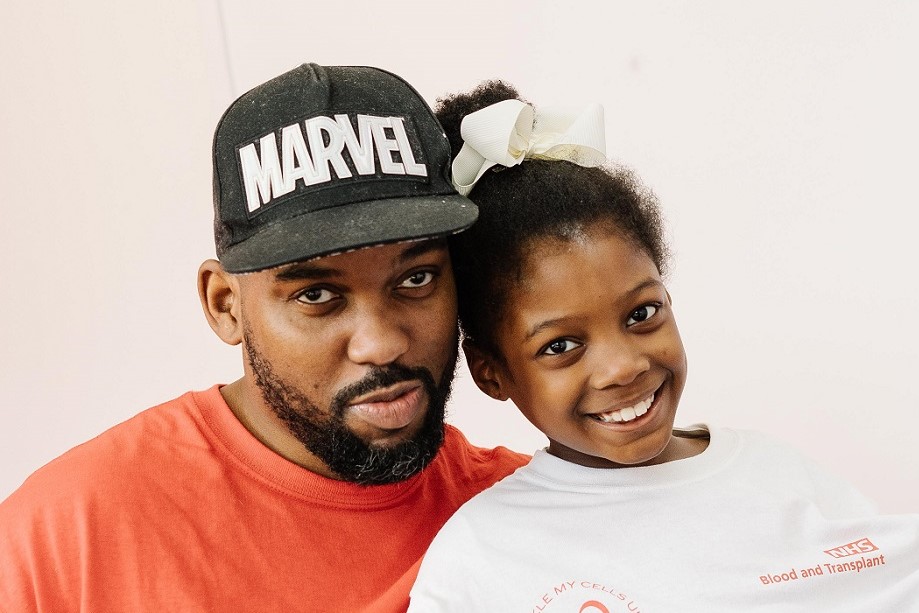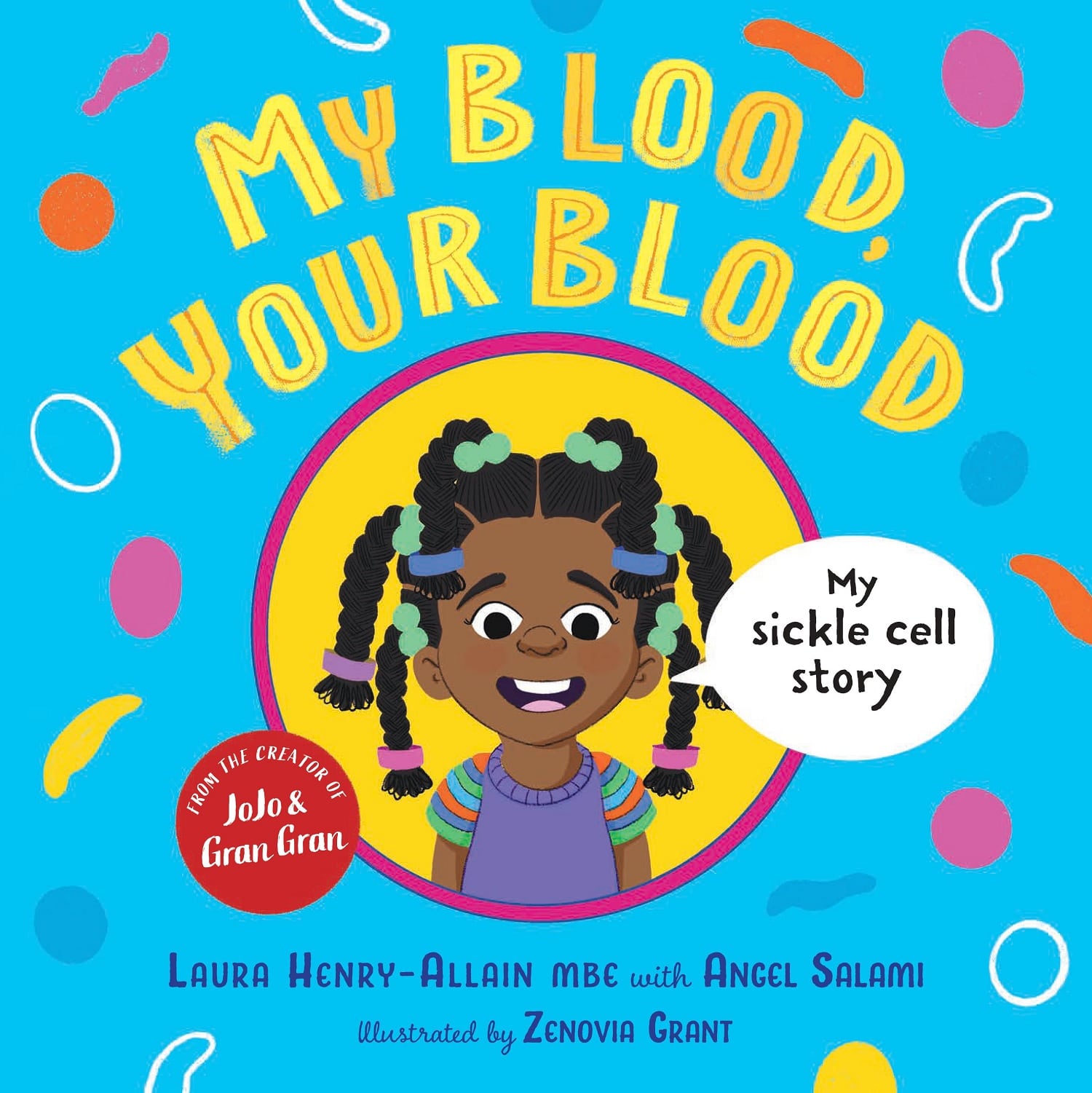My Blood, Your Blood
Every year, 300 babies are born with the blood disorder sickle cell. Angel was one of them.
Now 13, Angel has lent her experience of growing up with sickle cell to a new book which promises to raise awareness of the condition and help inspire the next generation.
 Sickle cell causes red blood cells to become sickle-shaped, meaning they can stick together and block blood vessels.
Sickle cell causes red blood cells to become sickle-shaped, meaning they can stick together and block blood vessels.
Angel was diagnosed with sickle cell at birth – a vastly different experience to her father, Kehinde, who also has sickle cell but only became aware of the condition when he became unexpectedly ill while at university.
Without him knowing, the sickle-shaped red blood cells had caused a blockage in Kehinde's blood: a sickle cell crisis. Sickle cell crises are extremely painful and can be life-threatening.
Unfortunately, despite medication largely managing Angel's condition, she still also experienced a crisis of her own, needing to be rushed to hospital.
"Angel often feels fatigued and can have headaches too," says Kehinde, "however, her first crisis was a really frightening time."
"It quickly became very severe where Angel's tongue turned blue and she was rushed to hospital with dangerously low haemoglobin levels and a lack of oxygen in her blood."
Angel received a blood transfusion and a red cell exchange – a procedure that replaces a patient's red blood cells with blood from donors.
 That experience may sound frightening, but it forms part of the uplifting new book based on Angel's childhood - My Blood, Your Blood.
That experience may sound frightening, but it forms part of the uplifting new book based on Angel's childhood - My Blood, Your Blood.
Written by by award-winning author Laura Henry-Allain MBE and illustrated by Zenovia Grant, the children's picture book demystifies sickle cell and is a story of resilience, community and the amazing things we can do when we care for one another.
The book also celebrates the lifechanging power of blood donation: people like Angel living with sickle cell may need as many as 100 units of blood at year to stay well.
Free copies of My Blood, Your Blood were given to every child in reception classes in all primary schools across Brixton during Sickle Cell Awareness Month and copies were also available at some of our donor centres as well as for lending at libraries across Lambeth.
There is currently an urgent need for more people of Black heritage to become blood donors. Nearly half of donors with Black heritage have the vital Ro blood subtype – far more than any other group.
"I am forever grateful to those donors that helped," says Kehinde. "Without that blood, Angel might not have recovered."
